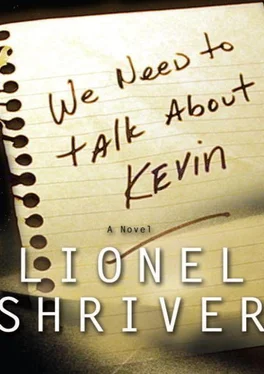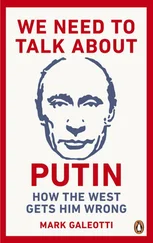I hate musicals.
Ordinarily, the finishing touch on a festive occasion was choosing the wine. I stared dolefully at our ample rack, bound to gather dust. Some celebration.
When the elevator clanked at our floor, I kept my back turned and arranged my face. With one glance at the tortured collection of conflicting twitches we make when we “arrange” our faces, you spared me the announcement. “You’re pregnant.”
I shrugged. “Looks that way.”
You kissed me, chastely, no tongue. “So when you found out—how’d you feel?”
“A bit faint, actually.”
Delicately, you touched my hair. “Welcome to your new life.”
Since my mother was as terrified of alcohol as she was of the next street over, a glass of wine had never lost for me its tantalizing quality of the illicit. Although I didn’t think I had a problem , a long draught of rich red at day’s end had long been emblematic to me of adulthood, that vaunted American Holy Grail of liberty. But I was beginning to intuit that full-blown maturity was not so very different from childhood. Both states in their extreme were all about following the rules.
So I poured myself a flute of cranberry juice and toasted, brightly. “La chaim!”
Funny how you dig yourself into a hole by the teaspoon—the smallest of compromises, the little roundings off or slight recastings of one emotion as another that is a tad nicer or more flattering. I did not care so much about being deprived of a glass of wine per se. But like that legendary journey that begins with a single step, I had already embarked upon my first resentment.
A petty one, but most resentments are. And one that for its smallness I felt obliged to repress. For that matter, that is the nature of resentment , the objection we cannot express. It is silence more than the complaint itself that makes the emotion so toxic, like poisons the body won’t pee away. Hence, hard as I tried to be a grown-up about my cranberry juice, chosen carefully for its resemblance to a young Beaujolais, deep down inside I was a brat. While you came up with names (for boys), I wracked my brain for what in all this—the diapers, the sleepless nights, the rides to soccer practice—I was meant to be looking forward to.
Eager to participate, you had volunteered to give up booze for my pregnancy, though our baby would be no more bouncing should you forgo your predinner microbrew. So you began festively knocking back cranberry juice to beat the band. You seemed to relish the opportunity to prove how little drinking meant to you. I was annoyed.
Then, you were always captivated by self-sacrifice. However admirable, your eagerness to give your life over to another person may have been due in some measure to the fact that when your life was wholly in your lap you didn’t know what to do with it. Self-sacrifice was an easy way out. I know that sounds unkind. But I do believe that this desperation of yours—to rid yourself of yourself, if that is not too abstract—burdened our son hugely.
You remember that evening? We should have had so much to talk about, but we were awkward, halting. We were no longer Eva and Franklin, but Mommy and Daddy; this was our first meal as a family , a word and a concept about which I had always been uneasy. And I was short-tempered, discarding all the names you came up with, Steve and George and Mark, as “way too ordinary,” and you were hurt.
I couldn’t talk to you. I felt pent up, clogged. I wanted to say: Franklin, I’m not sure this is a good idea. You know in your third trimester they won’t even let you onto a plane? And I hate this whole rectitudinous thing , the keeping to a good diet and setting a good example and finding a good school…
It was too late. We were supposed to be celebrating and I was supposed to be elated.
Frantic to recreate the longing for a “backup” that had got me into this, I roused the memory of the night you were stranded in the pine barrens— barren , had that set me off? But that May evening’s rash decision had been an illusion. I had made up my mind all right, but long before, back when I fell so hard and irrevocably for your guileless American smile, your heartbreaking faith in picnics. However weary I might have grown with writing up new countries, over time it is inevitable that food, drink, color, and trees—the very state of being alive is no longer fresh. If its shine had tarnished, this was still a life I loved, and one into which children didn’t readily fit. The single thing I loved more was Franklin Plaskett. You coveted so little; there was only one big-ticket item you wanted that was in my power to provide. How could I have denied you the light in your face when you lifted Brian’s squealing little girls?
With no bottle over which to linger, we went to bed on the early side. You were nervous about whether we were “supposed” to have sex, if it would hurt the baby, and I grew a little exasperated. I was already victimized, like some princess, by an organism the size of a pea. Me, I really wanted to have sex for the first time in weeks, since we could finally fuck because we wanted to get laid and not to do our bit for the race. You acquiesced. But you were depressingly tender.
Though I expected that my ambivalence would evanesce, this conflicted sensation grew only sharper, and therefore more secret. At last I should come clean. I think the ambivalence didn’t go away because it wasn’t what it seemed. It is not true that I was “ambivalent” about motherhood. You wanted to have a child. On balance, I did not. Added together, that seemed like ambivalence, but though we were a superlative couple, we were not the same person. I never did get you to like eggplant.
Eva
Dear Franklin,
I know I wrote only yesterday, but I now depend on this correspondence to debrief from Chatham. Kevin was in a particularly combative humor. Right off the bat he charged, “You never wanted to have me, did you?”
Before being impounded like a pet that bites, Kevin wasn’t given to asking me about myself, and I actually took the question as promising. Oh, he reached for it in dull restiveness, pacing his cage, but there’s something to be said for being bored out of your mind . He must have previously recognized that I had a life, in order to go about ruining it with such a sense of purpose. But now he had further appreciated that I had volition: I’d chosen to have a child and had harbored other aspirations that his arrival might have thwarted. This intuition was at such odds with the therapists’ diagnosis of “empathic deficiency” that I felt he deserved an honest reply.
“I thought I did,” I said. “And your father, he wanted you—desperately.”
I looked away; Kevin’s expression of sleepy sarcasm was immediate. Perhaps I shouldn’t have cited, of all things, your desperation. Me, I loved your longing; I had personally profited from your insatiable loneliness. But children must find such hunger disquieting, and Kevin would routinely translate disquiet into contempt.
“You thought you did ,” he said. “You changed your mind.”
“I thought I needed a change,” I said. “But no one needs a change for the worse.”
Kevin looked victorious. For years he has tempted me to be nasty. I remained factual. Presenting emotions as facts—which they are—affords a fragile defense.
“Motherhood was harder than I’d expected,” I explained. “I’d been used to airports, sea views, museums. Suddenly I was stuck in the same few rooms, with Lego.”
“But I went out of my way,” he said with a smile that lifted lifelessly as if by hooks, “to keep you entertained.”
Читать дальше












